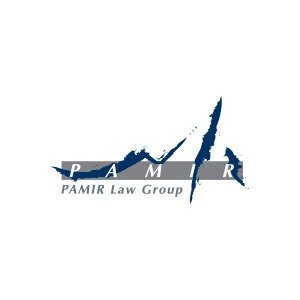Best Franchising Lawyers in Taiwan
Share your needs with us, get contacted by law firms.
Free. Takes 2 min.
Or refine your search by selecting a city:
List of the best lawyers in Taiwan
About Franchising Law in Taiwan
Franchising in Taiwan is regulated by both civil and commercial laws, providing a structured environment for franchise operations. The Ministry of Economic Affairs (MOEA) oversees franchise activities, ensuring compliance and providing guidance to both franchisors and franchisees. Franchising is a popular business model that allows local entrepreneurs to leverage established brand names and systems, thereby reducing business risks and enhancing market entry. Due to Taiwan's robust legal system and its pro-business stance, franchising has become a significant avenue for both local and international businesses to expand within the region.
Why You May Need a Lawyer
Seeking legal advice in the area of franchising is crucial for several reasons. A lawyer specialized in franchising can:
1. Assist in reviewing and drafting franchise agreements to ensure fairness and compliance with local laws.
2. Offer guidance on regulatory requirements and help acquire necessary approvals from MOEA.
3. Resolve disputes arising from franchise operations, such as territorial conflicts or breach of contract.
4. Clarify intellectual property rights and assist in protecting brand assets.
5. Provide counsel during negotiations with franchisors to secure favorable terms.
Local Laws Overview
Franchising in Taiwan involves various legal aspects, regulated primarily by the Fair Trade Act and the Civil Code. Key points include:
- Disclosure Obligations: Franchisors must provide prospective franchisees with comprehensive disclosure documents before signing any agreement, ensuring transparency regarding fees, operational guidelines, and financial performance.
- Trademark Protection: Taiwan’s trademark laws grant strong protection of brand logos and names, crucial for franchise integrity.
- Competition Law: The Fair Trade Commission of Taiwan oversees compliance with antitrust laws, preventing unfair competition and monopolistic practices.
- Contractual Freedom: The Civil Code allows franchisors and franchisees to negotiate terms, but these must align with mandatory statutory provisions and public policy.
Frequently Asked Questions
What is required to start a franchise in Taiwan?
To start a franchise, you must follow specific legal procedures including registering your business, securing trademark rights, and obtaining a commercial license from MOEA.
Are franchise agreements subject to approval by Taiwanese authorities?
While franchise contracts are not required to be approved by authorities, they must comply with the Fair Trade Act and other relevant laws.
How are franchise fees structured in Taiwan?
Franchise fees vary depending on the brand, but typically include initial setup fees, ongoing royalties based on sales, and contributions to marketing funds.
Can franchise agreements be terminated unilaterally?
Terminating a franchise unilaterally is generally not allowed unless specific conditions in the contract are met, such as breach of terms by one party.
What are the intellectual property considerations for franchisors?
Franchisors must ensure their trademarks are registered with Taiwan’s Intellectual Property Office to safeguard their brands against infringement.
What are the common disputes in franchising?
Disputes often arise over fee structures, contract renewals, territorial encroachment, and operational disagreements.
Is there a cooling-off period for franchise agreements?
There is no mandatory cooling-off period, but potential franchisees should review disclosure documents thoroughly before committing.
How does the Fair Trade Act impact franchising?
The Fair Trade Act prevents anticompetitive practices and mandates fair trading conditions, ensuring balanced franchisor-franchisee relationships.
Are foreign franchisors treated differently in Taiwan?
Foreign franchisors are subject to the same regulations as domestic franchisors, but may require additional approval for foreign investments.
What legal documents should a franchisee review?
Franchise disclosure documents, the franchise agreement, operational manuals, and any accompanying ancillary agreements should be reviewed.
Additional Resources
For those seeking further guidance, the following resources can be helpful:
- Ministry of Economic Affairs (MOEA): Provides official guidelines and support for franchises.
- Taiwan Intellectual Property Office: Assists with trademark registration and protection.
- Fair Trade Commission: Offers resources on compliance with competition laws.
Next Steps
If you require legal assistance with franchising in Taiwan, consider taking these steps:
1. Consult with a lawyer who specializes in franchising and commercial law to understand your legal standing.
2. Prepare all necessary documents, including financial statements and proposed franchise agreements, for legal review.
3. Arrange a meeting with your lawyer to discuss your objectives, potential challenges, and strategies for compliance with local laws.
4. Conduct thorough research on your preferred franchise and engage with current franchisees for insights.
Lawzana helps you find the best lawyers and law firms in Taiwan through a curated and pre-screened list of qualified legal professionals. Our platform offers rankings and detailed profiles of attorneys and law firms, allowing you to compare based on practice areas, including Franchising, experience, and client feedback.
Each profile includes a description of the firm's areas of practice, client reviews, team members and partners, year of establishment, spoken languages, office locations, contact information, social media presence, and any published articles or resources. Most firms on our platform speak English and are experienced in both local and international legal matters.
Get a quote from top-rated law firms in Taiwan — quickly, securely, and without unnecessary hassle.
Disclaimer:
The information provided on this page is for general informational purposes only and does not constitute legal advice. While we strive to ensure the accuracy and relevance of the content, legal information may change over time, and interpretations of the law can vary. You should always consult with a qualified legal professional for advice specific to your situation.
We disclaim all liability for actions taken or not taken based on the content of this page. If you believe any information is incorrect or outdated, please contact us, and we will review and update it where appropriate.
Browse franchising law firms by city in Taiwan
Refine your search by selecting a city.
















